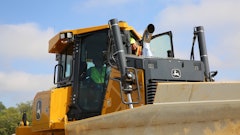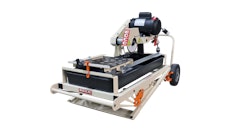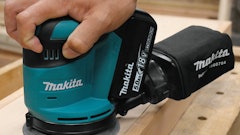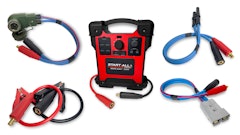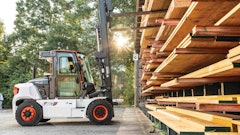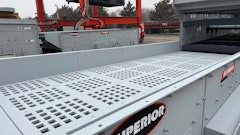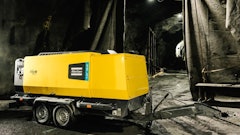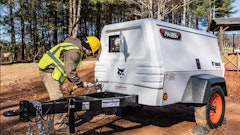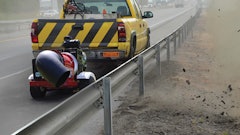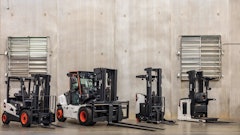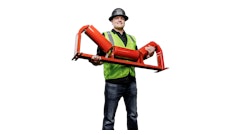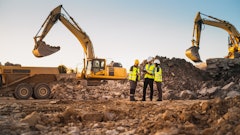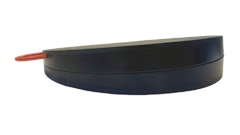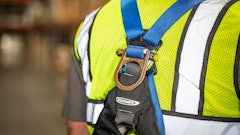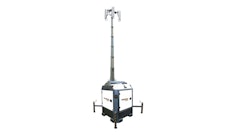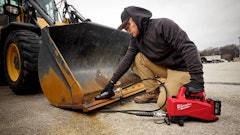
Portable air compressors are versatile worksite tools that are used in a wide range of applications on construction and industrial sites to smaller home improvement projects and automotive repairs. Renting can maximize your productivity while also allowing you to try out the equipment before committing to a purchase. When renting a portable air compressor, there are several important considerations to ensure that you select the right unit for your needs.
Here are some key factors to consider when renting a portable air compressor:
Air Pressure & Flow Rate
One of the most important considerations when renting a portable air compressor is the air pressure and flow rate that the equipment can deliver. Different applications require different levels of air pressure and flow, so it's essential to match the compressor's specifications to the requirements of your specific task. Consider the tools or equipment that you will be using with the compressor and ensure that it can provide the necessary air pressure and flow rate.
Air pressure with a lower cfm (cubic feet per minute) rating can support applications such as powering pneumatic tools, sandblasting/surface prep, painting, and winterizing irrigation systems. A higher cfm rating may be necessary for industrial and heavy-duty applications including industrial sandblasting, large-scale painting applications, or serving as an industrial systems backup.
Unique Application Needs
Your unique needs can have a significant impact on air compressor selection. Applications near waterways and tasks that require fine surface finishes, such as steel painting, typically require oil-free air. Seek out a rental unit that can offer Instrument Quality Air, preventing downstream contamination of paint finishes or even damage to sensitive equipment.
Additionally, if an air compressor is used for more than one type of application on a jobsite, dual pressure/dual flow air compressors deliver the pressure and flow options typical of two units in a single air compressor. Operators can change from a low-pressure to a high-pressure setting with one machine. The added versatility and productivity lowers costs and adds value to any job site.
For smaller and residential renovation projects such as boring under concrete or blowing out an irrigation system, a portable air compressor will provide significantly enhanced productivity and power compared to a shop compressor. While it can be tempting to “over-power” by selecting a higher CFM, renters should be mindful that matching power to task is best.
Size & Portability
Portable air compressors come in various sizes, from compact handheld units to larger towable, wheeled models. For most jobs, a free air delivery between 185-425 cfm is the ideal range so you are not under- or over-powering for the task.
Consider the portability of the compressor and how easily it can be transported to and around your job site. For instance, if you need to move the compressor between different locations or work at remote sites, a smaller and more portable unit may be more suitable.
Maintenance and Support
When renting a portable air compressor, consider the maintenance requirements and any support services provided by the rental company. Ensure that the equipment is well-maintained and in good working condition before renting it and inquire about any available technical support or assistance in case of issues during the rental period.
Rental Duration and Cost
Consider if you’ll use a portable air compressor for a one-time job or if you’ll have ongoing projects that require it. Based on the timeframe, evaluate the costs of ongoing rentals versus purchasing the equipment as part of your fleet.
Safety
While all the considerations above touch on sound operation and use procedures, the importance of safety around portable air compressor units cannot be overstated. When renting a machine, ensure the rental company provides a thorough overview of the machine’s operation, as well as any safety considerations. Operators should treat these units as seriously as they do other jobsite equipment.
Make sure the unit is in location with clean, dry inlet air and on a level, dry surface. Operators should perform a walk-around inspection to make sure hoses, power supply and fuel levels are optimal. Wear appropriate protective gear, which includes safety goggles, gloves and hearing protection when working near and around portable air compressor units.
Renting a portable air compressor can be a great way to maximize efficiency. By evaluating these key considerations, you can select the most suitable portable air compressor for your needs and ensure the successful completion of your work.



